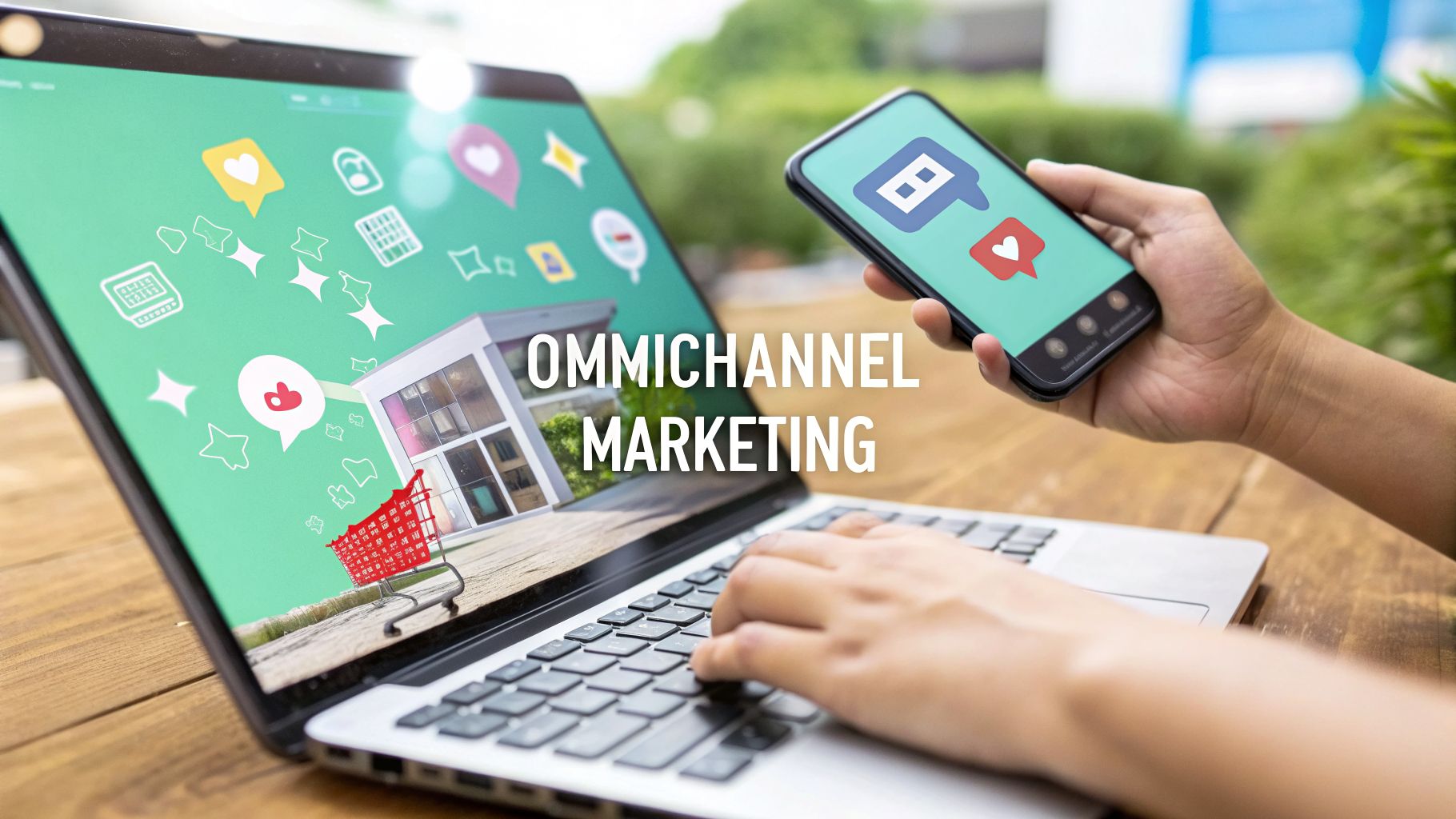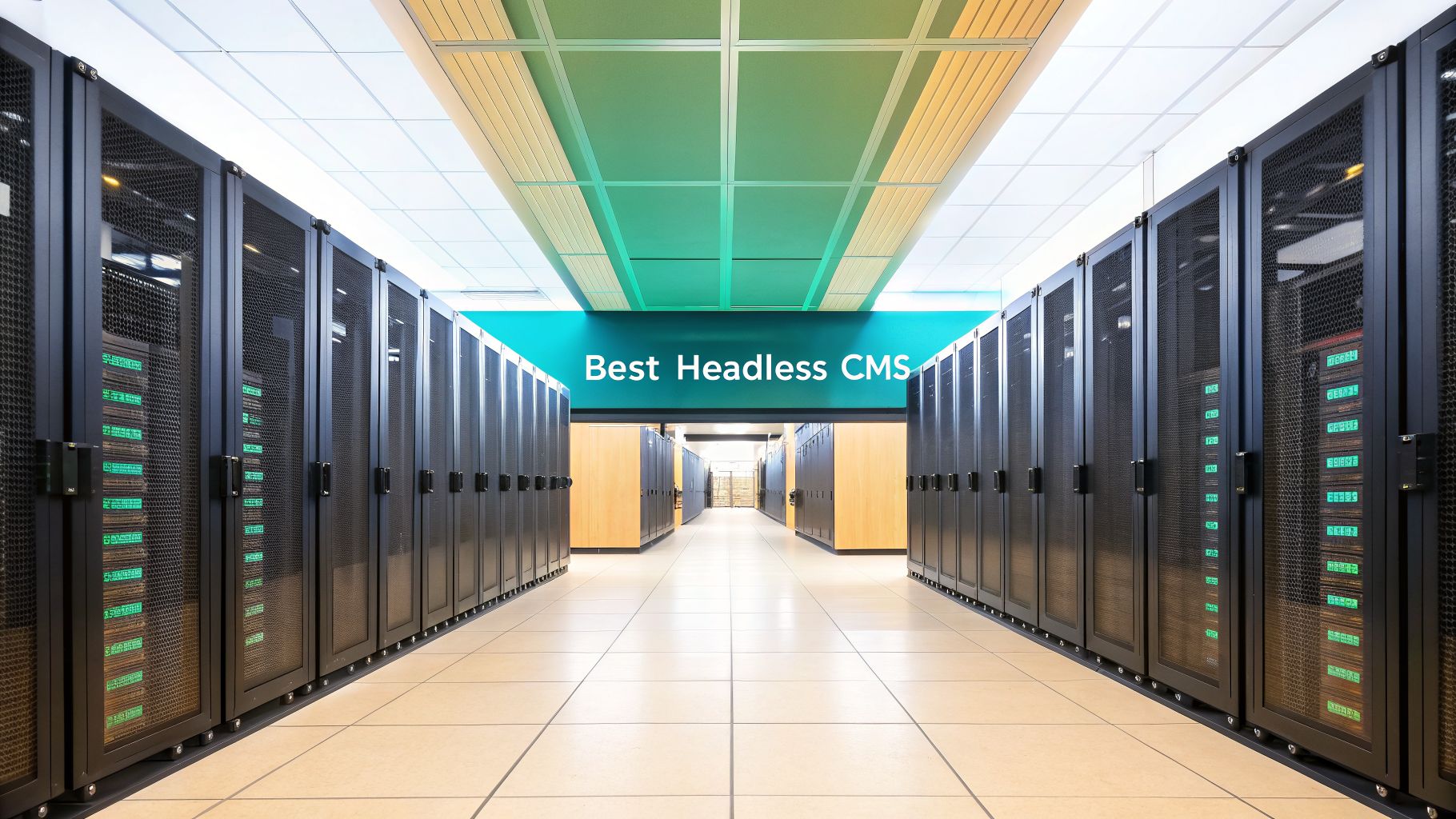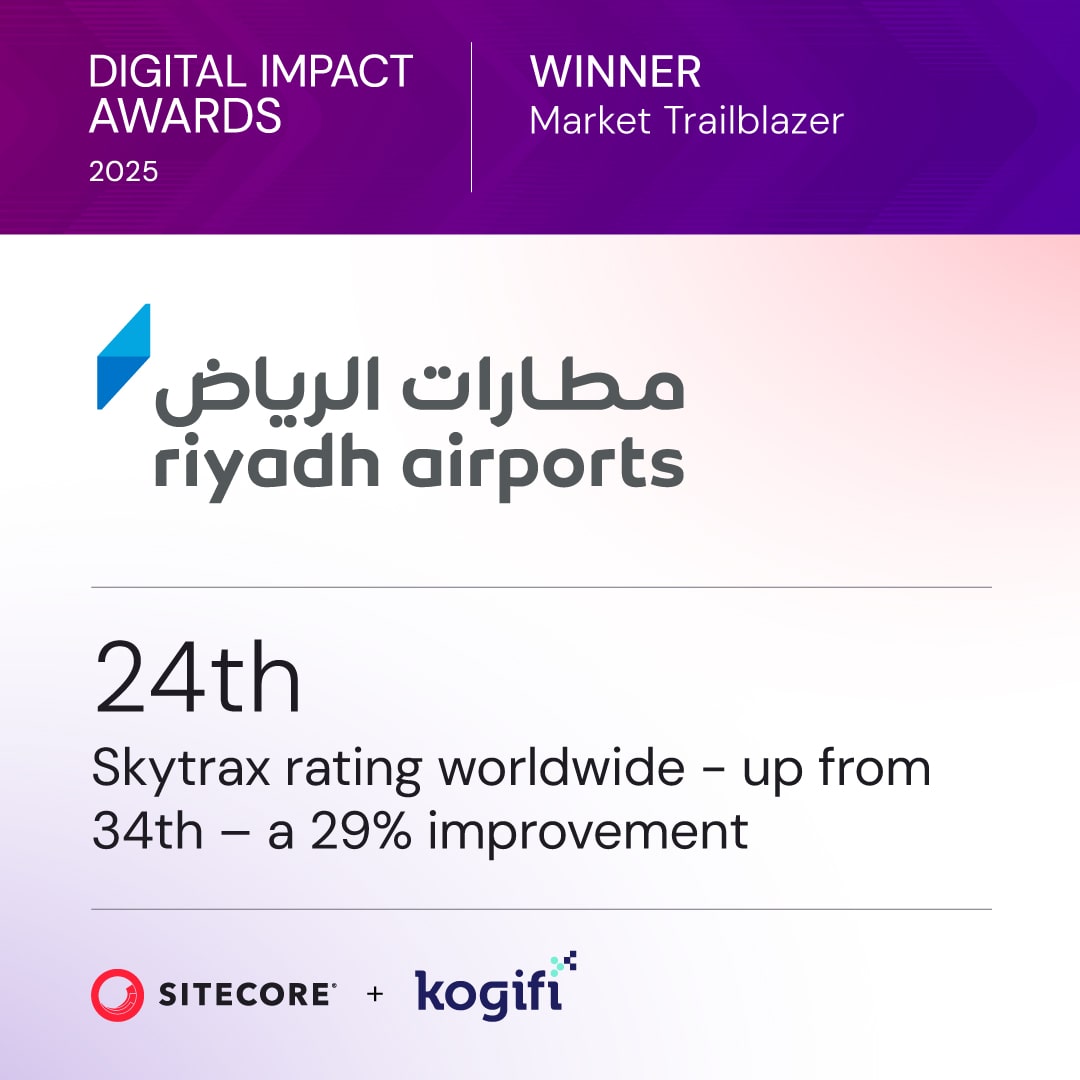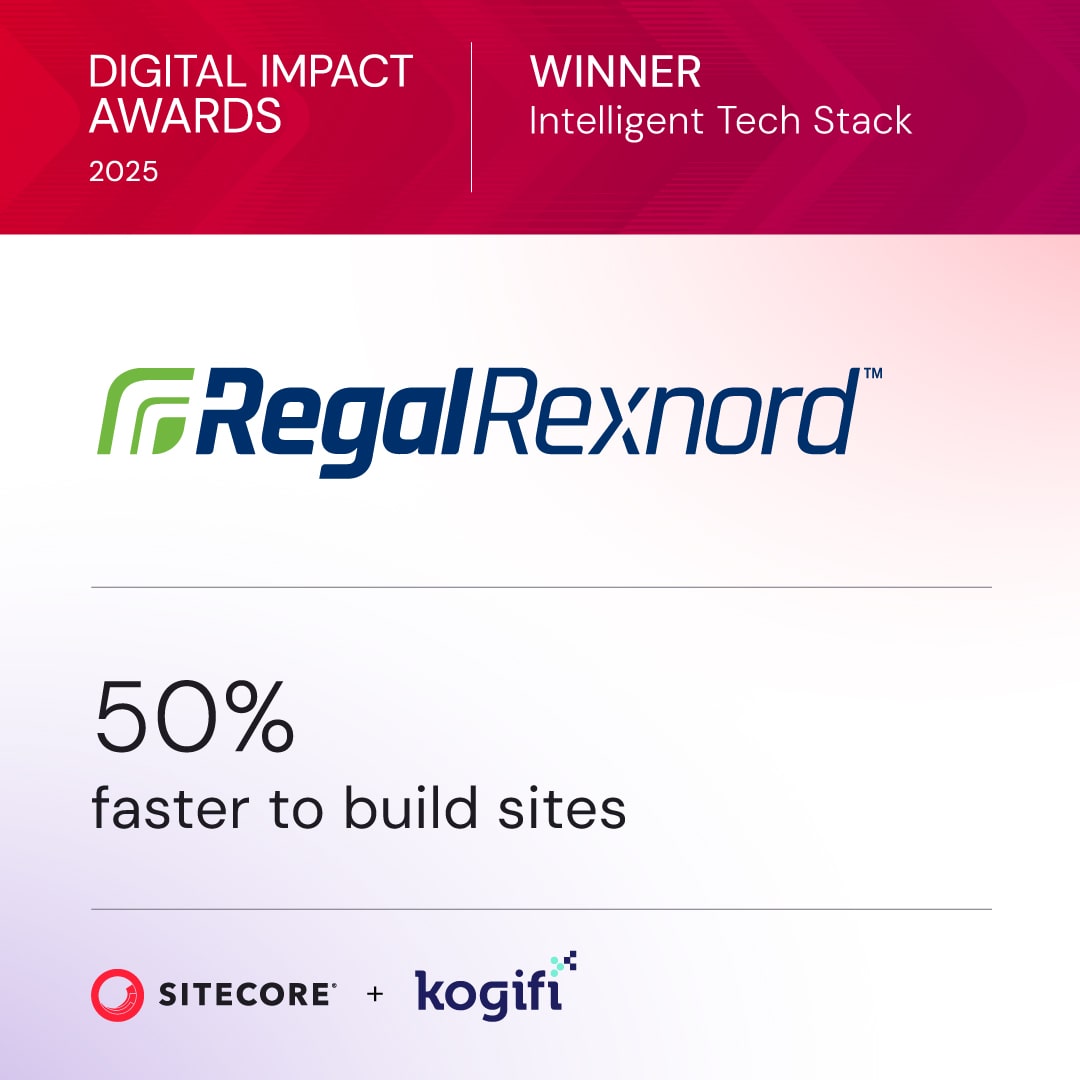Choosing between Sitecore XP and Sitecore XM Cloud depends on your business needs. Here's a quick summary:
- Sitecore XP: Ideal for businesses needing advanced marketing automation, personalization, and full control over infrastructure. Best for complex, on-premises setups or hybrid environments.
- Sitecore XM Cloud: A cloud-native, SaaS platform focused on speed, scalability, and simplified management. Perfect for businesses prioritizing fast deployment, lower costs, and modern, headless architecture.
Quick Comparison
| Feature | Sitecore XP | Sitecore XM Cloud |
|---|---|---|
| Deployment | On-premises, hybrid, or cloud | SaaS only |
| Architecture | All-in-one | Composable, headless |
| Infrastructure | Self-managed | Sitecore-managed |
| Scalability | Manual scaling | Auto-scaling, serverless |
| Personalization | Advanced, historical data-based | Simplified, session-based |
| Cost | Higher upfront costs | Predictable SaaS pricing |
| Development | .NET-based | JavaScript/TypeScript-based |
Key takeaway: Choose Sitecore XP for control and advanced marketing tools. Opt for Sitecore XM Cloud for speed, scalability, and ease of use.
What is Sitecore XM Cloud?

1. Sitecore XP Features

Sitecore XP is a robust digital experience platform built on Microsoft .NET, combining top-tier content management capabilities with advanced marketing tools.
Architecture and Core Components
The platform integrates essential elements like Experience Manager, xConnect, xDB, and SQL Server, creating a seamless system for collecting and processing data across multiple channels.
Scalability and Performance
Sitecore XP is designed to handle growing demands with various scaling options:
| Scaling Type | How It Works | Ideal For |
|---|---|---|
| Vertical Scaling | Adding more RAM or CPU resources | Quick performance boosts |
| Horizontal Scaling | Deploying multiple web applications with load balancing | High-traffic enterprises |
| Role-based Scaling | Assigning specific servers to dedicated functions | Complex deployments |
Advanced Personalization
Personalization is a standout feature of Sitecore XP. For example, the Mandarin Oriental Hotel Group saw a 42% increase in new visitors across 36 sites by offering tailored experiences. Similarly, Thule Group achieved a 35% boost in conversions by using omnichannel marketing automation across 80 markets.
AI-Powered Features
The platform leverages AI through Sitecore Stream AI, which powers features like automated content variant generation, A/B/n testing optimization, intelligent personalization, and real-time data analysis. These tools simplify decision-making and enhance user engagement.
Real-World Impact
Several companies have seen tangible results with Sitecore XP:
- L'Oréal: In 2023, their use of AI-powered meta-tagging across 500+ sites saved 120,000 hours of maintenance.
- Destination Gold Coast: Managing 45,000 digital assets allowed them to achieve a 17% increase in visitor time on site.
Deployment Flexibility
Sitecore XP supports diverse deployment options to meet varying security and infrastructure needs:
- On-premises installation
- Private cloud hosting
- Managed cloud services
These choices ensure businesses can align the platform with their specific operational requirements.
With 53% of businesses reporting increased revenue through content marketing, Sitecore XP offers the tools enterprises need to take full control of their digital experience strategies.
2. Sitecore XM Cloud Features
Sitecore XM Cloud is a cloud-based SaaS platform tailored to meet the demands of modern enterprises.
Cloud-Native Architecture
XM Cloud is built for performance. With auto-scaling and serverless computing, it ensures reliable and efficient operations. Its globally distributed infrastructure leverages edge computing to deliver content in just 50–150 milliseconds. This makes it an excellent choice for businesses with a global audience, enabling quick and seamless content delivery.
Advanced Page Builder
The drag-and-drop Page Builder on XM Cloud takes page creation to the next level, boosting efficiency by up to 10x. Here's how it stands out:
| Feature | Benefit |
|---|---|
| Visual Editing | See changes in real-time |
| Pre-built Templates | Assemble pages quickly and easily |
| One-click Deploy | Update sites without downtime |
This tool not only speeds up the creation process but also integrates personalization features effortlessly.
Embedded Personalization
XM Cloud simplifies personalization, allowing marketers to craft tailored experiences with ease. Personalization can be based on various criteria, including:
- Geographic location
- Device type
- User interactions and visit history
- Time and date parameters
This capability ensures that content resonates with individual users, enhancing engagement.
Enterprise-Grade Security and Maintenance
Forget manual updates - XM Cloud handles everything automatically. It includes:
- Automatic platform updates
- Built-in security patches
- Zero-downtime deployments
This hands-off approach ensures businesses can focus on growth without worrying about maintenance or security.
Performance and Scalability
XM Cloud's infrastructure is built to scale. In 2024, it achieved a 100% revenue increase globally and an impressive 130% growth in the U.S.. This scalability is powered by:
| Component | Capability |
|---|---|
| Auto-scaling | Adapts to traffic spikes automatically |
| Global CDN | Fast content delivery worldwide |
| Edge Computing | Near-instant personalized content |
| Serverless Architecture | No need for infrastructure management |
These features ensure XM Cloud is ready to handle the demands of any enterprise.
Real-World Implementation
XM Cloud’s modern SaaS setup drastically cuts deployment times, reducing them from weeks to just hours. With visual editing tools and pre-built templates, marketing teams gain the freedom to work independently, speeding up workflows while maintaining quality.
Cost Efficiency
The SaaS model of XM Cloud offers predictable pricing and lowers the total cost of ownership by cutting expenses in several areas:
- Server infrastructure
- DevOps resources
- Manual maintenance
- Security compliance management
sbb-itb-91124b2
Platform Comparison
When deciding between Sitecore XP and Sitecore XM Cloud, it's important to understand how their core differences influence functionality and performance. Here's a closer look at what sets these platforms apart.
Architecture and Performance
Sitecore XM Cloud stands out with its cloud-native, headless architecture, enabling lightning-fast content delivery in just 50–150 milliseconds. On the other hand, Sitecore XP's traditional architecture relies on origin-based servers, which can limit the efficiency of edge networks.
| Aspect | Sitecore XP | Sitecore XM Cloud |
|---|---|---|
| Architecture | Traditional, all-in-one | Cloud-native, headless |
| Infrastructure Management | Manual control | Automated scaling and updates |
| Content Delivery | Origin server | Edge computing |
| Infrastructure Costs | Higher maintenance | Reduced operational costs |
Personalization Capabilities
Both platforms support personalization, but their approaches differ significantly:
| Feature | Sitecore XP | Sitecore XM Cloud |
|---|---|---|
| Data Collection | xDB historical and session data | Session-focused data |
| Personalization Scope | Website-focused | Page-level personalization |
| Processing Location | Origin server | Edge computing |
| Real-time Capabilities | Yes, with a complex setup | Yes, with simplified setup |
Real-World Impact
For example, the California Teachers Association Member Benefits (CTAMB) saw a 40% improvement in Google Lighthouse Scores and PageSpeed Insights after moving to XM Cloud. This demonstrates the tangible benefits of adopting a cloud-native platform.
Integration and Customization
Customization and integration options further highlight the differences between these platforms:
| Capability | Sitecore XP | Sitecore XM Cloud |
|---|---|---|
| Deployment Flexibility | On-premises/private cloud | SaaS-only |
| Customization Scope | System-wide modifications | API-first, headless |
| Analytics Integration | Built-in tools | Requires third-party tools |
| Development Environment | Traditional | Modern, composable |
Cost Considerations
Sitecore XP often involves higher upfront investments due to manual infrastructure management and maintenance. In contrast, XM Cloud offers predictable SaaS pricing, making budgeting simpler.
"Headless websites (powered by Next.js, running on Vercel or Netlify) have significant performance and scalability advantages."
– Dan Cruickshank, President | 12x Sitecore MVP
Scalability
Scalability is another area where XM Cloud shines. Its automated scaling, combined with global CDN infrastructure, edge computing, and serverless architecture, offers seamless growth potential. Sitecore XP, however, requires manual resource management, which might appeal to organizations seeking full control over their infrastructure.
Making Your Choice
Deciding between Sitecore XP and XM Cloud comes down to understanding your specific needs and priorities.
Business Size and Budget Considerations
For small to medium-sized businesses, XM Cloud often makes more sense, offering:
- Lower infrastructure costs
- A subscription-based SaaS pricing model
- Automated updates and maintenance, reducing IT overhead
For large enterprises, the choice depends on specific requirements:
| Business Need | Recommended Platform | Key Advantage |
|---|---|---|
| Complex Marketing Automation | Sitecore XP | Advanced tools for automation |
| Global Content Delivery | XM Cloud | Delivery speeds of 50–150ms |
| Data Sovereignty Requirements | Sitecore XP | On-premises deployment flexibility |
| Rapid Digital Transformation | XM Cloud | Quick and seamless implementation |
Technical Requirements Assessment
Your technical setup plays a big role in the decision-making process:
| Requirement | Sitecore XP | Sitecore XM Cloud |
|---|---|---|
| Development Framework | .NET MVC | JavaScript/TypeScript |
| Infrastructure Control | Full control | Managed by SaaS provider |
| Upgrade Process | Manual | Automatic |
"Without big data analytics, companies are blind and deaf, wandering out onto the web like deer on a freeway." – Geoffrey Moore
Your personalization goals will also influence which platform aligns better with your strategy.
Personalization Needs
If your strategy relies heavily on historical data and advanced automation, Sitecore XP is the better option. On the other hand, if you need faster content delivery and session-based personalization, XM Cloud is the way to go.
Growth Considerations
- Starting Fresh: If you're embarking on a digital transformation, XM Cloud’s modern architecture and automatic updates make it an excellent choice.
- Existing Infrastructure: For businesses with established systems and strict hosting requirements, Sitecore XP offers greater control and easier integration.
- Future Expansion: XM Cloud’s cloud-native design supports seamless scalability, while XP requires more planning for scaling efforts.
Real-World Cost Impact
XM Cloud’s professional hosting plans start at $19 per user per month, while enterprise tiers begin at approximately $34,500 annually. For organizations with 50–200 employees, XM Cloud typically proves to be a more cost-effective solution.
Final Decision Factors
Here’s a quick comparison to help you finalize your decision:
| Factor | Choose XP | Choose XM Cloud |
|---|---|---|
| Budget Priority | Higher upfront costs | Operational efficiency |
| Technical Focus | Full control | Rapid deployment |
| Marketing Needs | Built-in automation | Third-party integrations |
| Team Expertise | .NET development | JavaScript/TypeScript |
| Infrastructure | Self-managed | Cloud-managed |
FAQs
How do I decide between Sitecore XP and Sitecore XM Cloud for my business?
Choosing between Sitecore XP and Sitecore XM Cloud comes down to what your business needs most. If your focus is on deep customer engagement and managing complex content strategies, Sitecore XP might be the better fit. It’s packed with advanced tools like personalization, marketing automation, and analytics, making it a strong option for businesses aiming to create tailored customer experiences.
On the flip side, Sitecore XM Cloud is built for businesses that value scalability, simplicity, and quick deployment. As a SaaS-based solution, it eliminates the hassle of IT maintenance, offers automatic updates, and supports businesses that want to stay agile while keeping operational costs low.
To decide, think about your priorities: Do you need advanced personalization features? Are you looking for a platform that scales effortlessly? How much internal IT support can you dedicate? Both platforms are powerful, but the right choice depends on your goals and how you plan to execute your digital strategy.
What’s the difference between personalization in Sitecore XP and Sitecore XM Cloud, and which one is right for me?
Sitecore XP and Sitecore XM Cloud cater to different personalization needs, each offering unique features depending on your goals and technical capabilities.
Sitecore XP is designed for businesses that require detailed, rules-based personalization. It allows you to target users based on their behavior, location, and past interactions. This approach is perfect for organizations with the technical expertise and resources to manage complex personalization strategies. However, implementing it effectively does demand a solid grasp of data and rule-setting.
Sitecore XM Cloud takes a more straightforward approach. It provides real-time personalization that's easy for marketers to use, relying on conditions like device type or time of day. While it doesn’t offer the same level of flexibility as XP, it’s an excellent option for teams looking for a simple, efficient way to create personalized experiences without needing extensive technical support.
In short, choose Sitecore XP if you need advanced, customizable personalization and have the resources to back it up. Opt for Sitecore XM Cloud if you want a user-friendly solution that prioritizes ease of use and speed.
What are the cost differences between Sitecore XM Cloud and Sitecore XP, and how can they impact my organization’s long-term budget?
Choosing between Sitecore XM Cloud and Sitecore XP comes down to how their pricing models fit your organization's financial strategy. XM Cloud follows a subscription-based pricing structure. This approach often lowers upfront costs for infrastructure and maintenance but can result in fluctuating expenses over time, depending on how much you use and the features you need. On the other hand, Sitecore XP typically involves a one-time licensing fee paired with consistent annual maintenance costs, which can provide more predictable budgeting.
When planning for the future, think about factors like scalability, anticipated growth, and operational priorities. XM Cloud works well for businesses that value flexibility and want to minimize IT responsibilities. Meanwhile, XP could be a better choice for those who prefer stable costs and greater control over their on-premise setup. Weigh your organization's objectives and expected usage patterns to decide which platform delivers the best return on your investment.








































